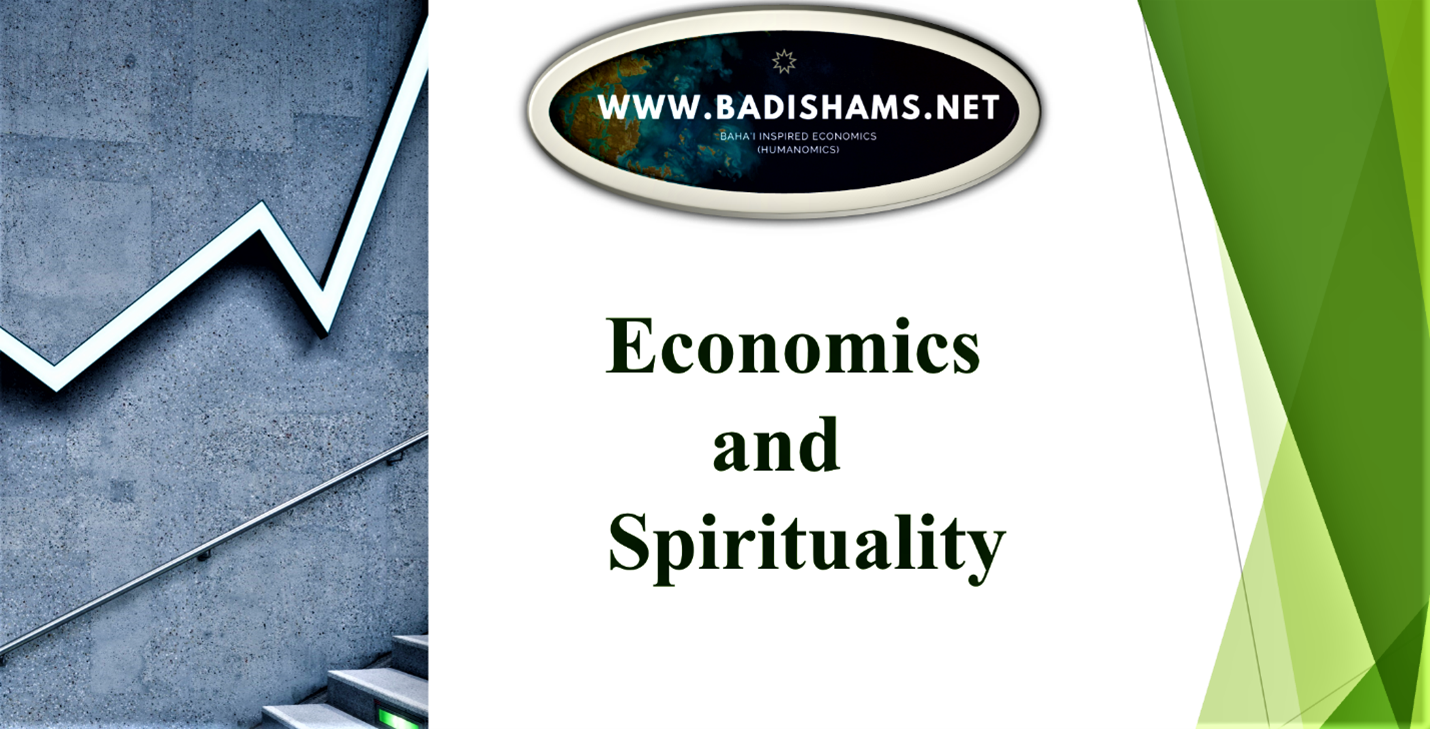- In Uncategorized
- On May 29, 2022
Economics and Spirituality from a Baha’i perspective (Part 4 of 5)
There are so many problems with the economic system, and we can see it easily. I believe that these problems in the system can be resolved and solved if there is a will. Now you may say- why do these problems keep happening? In my view, we got it wrong from the beginning. In my opinion, when Adam Smith made his assumption, he made a fundamental error,
To say that self-interest is the driving force or the system’s engine, he let greed go free in the system to grow as much as possible, so the economic system became a breeding ground for greed.
In reality, we know from the spiritual point of view a system without values such as honesty, kindness and generosity cannot stop the greed for money. Profit at any cost becomes the norm, even if it means letting millions of people live below the poverty line.
Money became the yardstick to measure our life’s achievement. If you have made 2 million, you are successful. If I had only $100 in my bank account when I died, I had failed to achieve because, according to the yardstick of money, I failed, but this is where the changes have to come fundamentally. Hopefully, the following quotation may help us to get some idea of how fundamental this change has to be:
“The secrets of the whole economic question are Divine in nature, and are concerned with the world of the heart and spirit.” -Abdu’l-Baha
Adam Smith had good intentions because he wanted to help people manage the economic side of their lives. But sentiments such as morality, kindness, and generosity were not included in his system. Those values that make us human were sacrificed to make the economic system a science to work efficiently. By keeping those values out, the system was based on the shaky ground of selfishness and greed. The foundation for a system that I advocate would have both material and spiritual elements.
Gross National Product (GNP) has been used to measure progress and development. In recent years this has been challenged, and it has been suggested to replace it with Gross National Happiness (GNH). The king of Bhutan was the first person to introduce this concept. He said, Why do we measure our achievement with some materialistic yardstick of (GNP), and why don’t we start measuring it with Gross National Happiness (GNH) and see if people are happy and measure the progress that way. Certain elements were introduced to measure the progress, such as faith, religion, and meditation. According to this system, people’s happiness was a better criterion for measurement than money or Gross National Product to see if that country, society, or economy is progressing.
I think this is the trend that eventually and hopefully will continue to gain prominence. The need for consideration of material and spiritual progress is highlighted in the following quotation, and we must have that in mind:
“Material civilization has reached an advanced plane, but now there is need of spiritual civilization. Material civilization alone will not satisfy; it cannot meet the conditions and requirements of the present age; its benefits are limited to the world of matter.” -Abdu’l-Baha
This is another critical departure from economic thinking. The realization that civilizations are of two kinds. It has been explained that these two are like two wings of a bird. I believe our civilization can progress when we manage to balance these two together. Without respecting both, we can not progress with one wing, whether it is too much of the material or too much of religion because if religion doesn’t support science, it becomes superstition. We need both of them. We need science; we need the material civilization to make all these inventions. We also need the spiritual civilization to guide us to make the right decisions, take care of the poor, and think about all those things that make us human and progress materially and spiritually.
- By Badi Shams
- Comments Off on Economics and Spirituality from a Baha’i perspective (Part 4 of 5)

